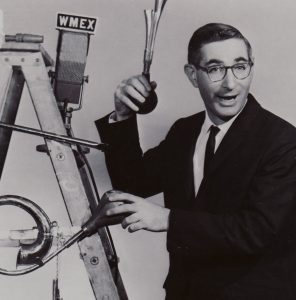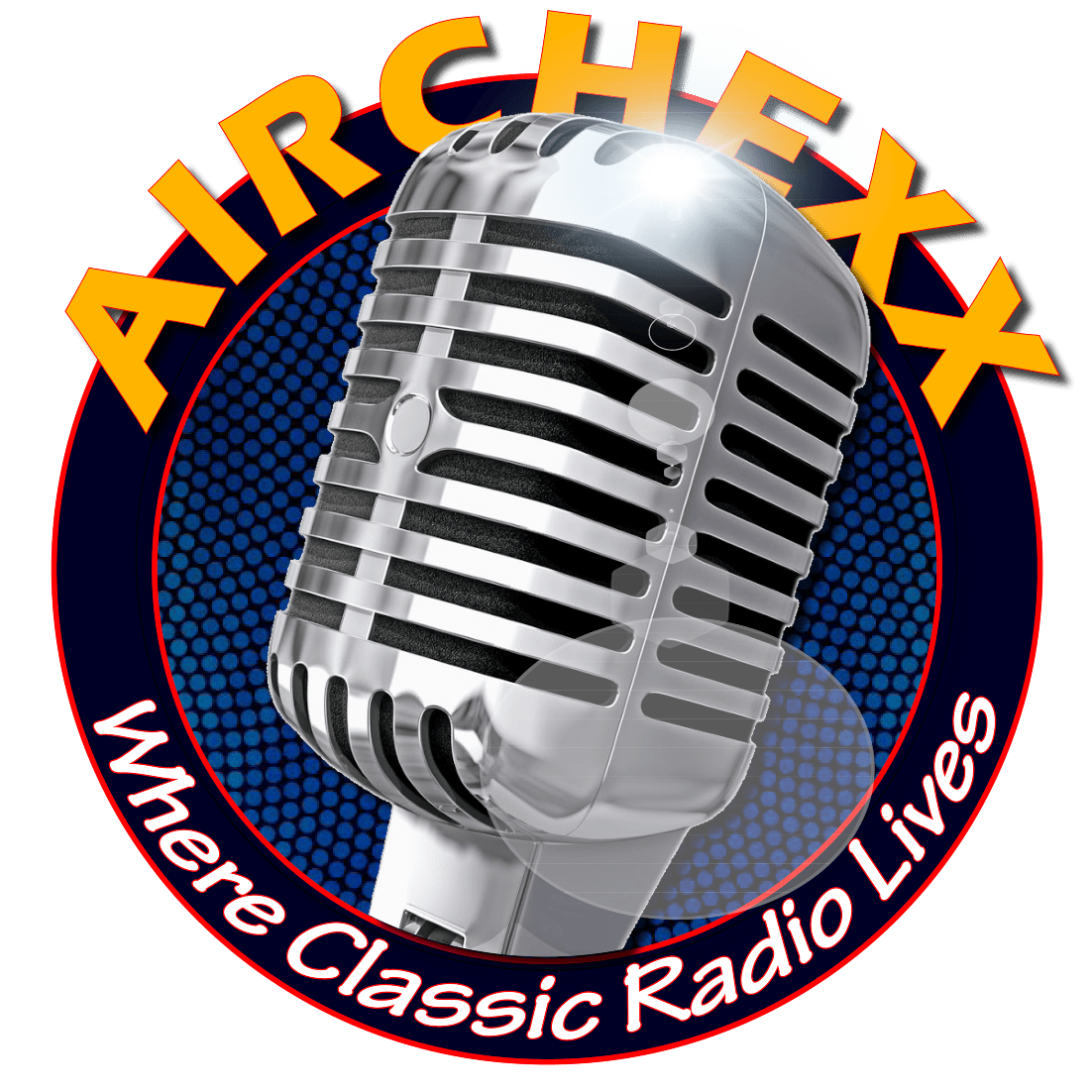
Station: 1510 WMEX Boston, Massachusetts
Featured Air Talent: Arnie Ginsburg
Aircheck Entry: 1,427
Comments:
When radio listeners in Boston think of early Top 40 radio in their city, they don’t think of WRKO. The early days were dominated by different stations. In Framingham there was 1200 WKOX, which did a faux-Drake format for a short time (along with it’s FM station at 105.7), and 1510 WMEX. WMEX had a decent signal, but it was highly directional. Like its later competitor, WRKO, WMEX could be heard well north up into Maine, but the signal was attenuated to the south and west to protect 1500 in Washington DC, and 1520 WKBW Buffalo NY, both of whom would otherwise get co-channel splatter from WMEX if it was non-directional. It’s those signal problems which would ultimately undo WMEX as a Top 40 station when WRKO came along with its 50,000 watts of Bill Drake consulted Top 40 power!
WMEX was well known for it’s WABC-style PAMS jingles, and jocks who were more like a friend to their listeners. When RKO launched, the streamlined, ‘much more music’ approach basically did WMEX in.
One of WMEX’s most popular Disk Jockeys was Arnie “Woo Woo” Ginsburg. Boston’s listening audience fondly remembers him even today, as a great Top 40 jock who pioneered the way for other successful DJs who would follow at various stations in the Hub over the next 30 years. Also very popular during this time was Larry Justice. Listen for a promo from Mr. Justice a few minutes into this aircheck.
We would be remiss if we didn’t mention that until 1965, while WMEX was doing very well, NO station in Boston was going to beat the giant WBZ 1030 “Radio 103” WBZ was straight ahead Top 40 for much of the early 1960s, with DJs like Carl DeSuze, Dave Maynard, “Juicy” Brucie Bradley (WRAL, WFIL, WYNY) and others. It was sometime in the late 1960s when WBZ abandoned the Top 40 format altogether in favor of a sleepy, personality oriented Middle-Of-The-Road format, that at times during the 70s and 80s went back and forth between Soft AC and Adult Top 40 (Modern format definitions), depending upon the Program Director at the time. But… at this point in 1965, WMEX had MOST of the teen audience, which would change in just a few short months, as WRKO had already emerged.






until WRKO came along in March of 1967, Boston did not have a 24-hour top 40 station with a signal that could cover the entire greater Boston area. WCOP 1150 had been 24 hours but stopped playing the hits in August of 1962. and its night pattern was atrocious. WMEX 1510 stopped playing music from 10 pm to 6 am when it went all-talk all night. WBZ stopped the music for “Program PM” nightly from 9:30 to ll:30 and later, “Contact” from 6:30 to 8 preceded by a half-hour news block. WORL 950 tried resurrecting its ’50s pop music format after a morning religious block but signed off at sunset. I used to listen to WCOP-FM 100.7 back home in NH when it simulcast 1150 back in the late ’50s-early ’60s. it had a great mono signal but FM hadn’t caught on with a mass audience yet.